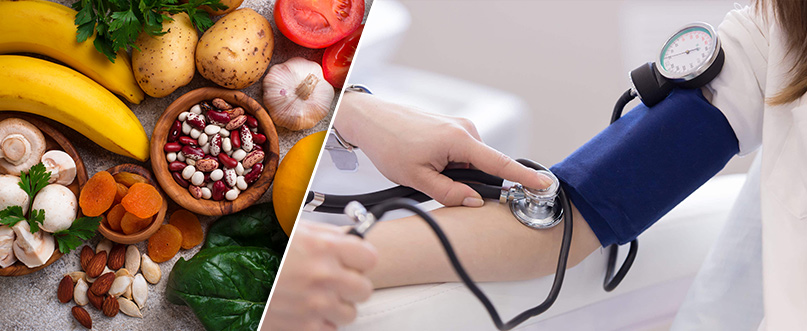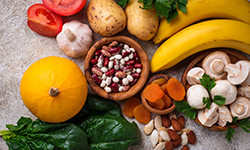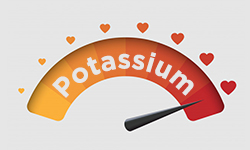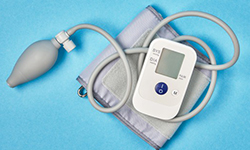
How Does Potassium Reduce Blood Pressure Levels?

Table of Contents
If you have been looking up hypertension diet recipes, you may have come across many foods that are rich in potassium. Potassium-rich foods helps to reduce blood pressure as the element antagonizes the effect caused by sodium. We also need potassium in our body for normal muscle function, preventing muscle cramps, maintaining fluid balance and relaxation of blood vessels. Popular hypertension diet recipes belong to the DASH diet that has low sodium but abundant potassium, magnesium and calcium.
How to Incorporate Potassium in Your Diet?

Some of these foods include:
Some interesting ways to sneak in more potassium in your diet are:
How Much Potassium is Too Much Potassium?

Having blood potassium levels higher than 5.2 millimoles per litre (mmol/L) is considered high. If blood potassium levels go beyond 6.0 mmol/L, it is considered a serious condition that requires immediate attention. Consuming potassium-rich foods does not cause high levels of potassium (hyperkalemia) in a normal healthy adult. This is because any excess amounts of potassium consumed are excreted by the kidneys. However, in individuals with kidney problems, improper excretion of excess potassium can lead to high levels of the element in the blood.
Though patients with high blood pressure are recommended to consume lots of potassium-rich foods, patients taking ACE inhibitors for their hypertension need to be careful with their potassium intake as it can increase the risk of hyperkalemia.
Wrapping It Up,

Note of caution:This article is for information purpose only. Always consult your doctor in case of hypertension or any other health-related problems.

 Avocado
Avocado Apricot
Apricot Bananas
Bananas Leafy-greens
Leafy-greens Mushrooms
Mushrooms Fat-free-yoghurt
Fat-free-yoghurt Lima-beans
Lima-beans Oranges
Oranges Green-peas
Green-peas Potatoes
Potatoes Tomatoes
Tomatoes Spinach
Spinach Raisins
Raisins Adding in spinach to your sandwiches that contain meat
Adding in spinach to your sandwiches that contain meat Combine fat-free yoghurt with raisins or apricots for a healthy snack
Combine fat-free yoghurt with raisins or apricots for a healthy snack Have a tomato and bean soup for lunch
Have a tomato and bean soup for lunch Toss a few of the above vegetables in a stir fry for your dinner
Toss a few of the above vegetables in a stir fry for your dinner
Comments (0)
No comments found.Add your comment